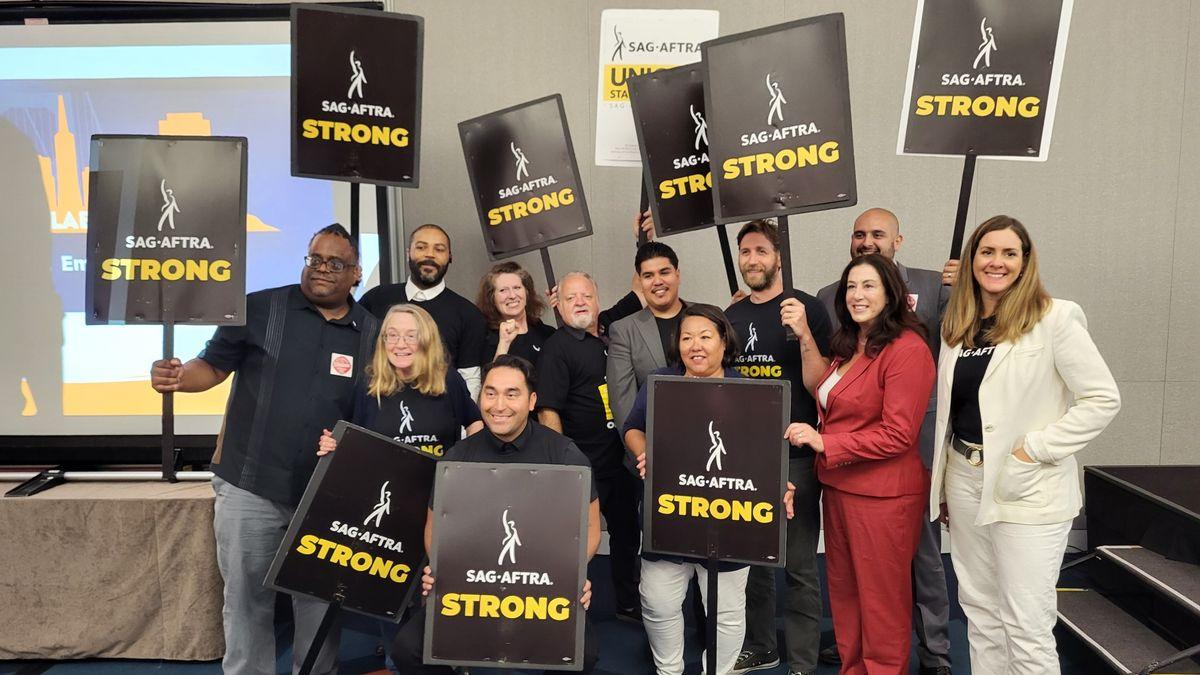Title: Hollywood’s Future: Seeking Permission for AI-Based Deepfakes of Long-Gone Stars
Introduction
The ever-evolving landscape of artificial intelligence (AI) has opened up an array of possibilities, one of which involves the creation of incredibly realistic “deepfakes.” These alterations, produced using sophisticated algorithms, allow artists and filmmakers to seamlessly superimpose an individual’s likeness onto another person’s body or face. While deepfakes could revolutionize cinema, there is growing debate surrounding the ethical implications, particularly when it comes to resurrecting the images and personas of long-departed stars. As AI advances, Hollywood will inevitably be required to obtain explicit permission or face legal scrutiny before generating deepfakes of iconic personalities.
The Rise of Deepfakes and Ethical Concerns
Deepfakes have garnered significant attention in recent years due to their ability to deceive, misrepresent, and even exploit individuals. By employing AI algorithms and machine learning technology, artists can convincingly manipulate images, videos, and voice recordings. As a result, deepfakes can be misused to fabricate and circulate fake news, defame celebrities, or peddle political misinformation. Such concerns have sparked discussions around the need for regulations and ethical frameworks to ensure responsible use of AI technologies.
Resurrecting Long-Gone Stars
Hollywood, an industry deeply enmeshed with technology and creativity, has not shied away from exploring the possibilities of deepfakes. The idea of resurrecting beloved actors, even decades after their untimely departure, holds significant fascination for filmmakers and audiences alike. Imagine witnessing Marilyn Monroe performing in a contemporary romantic comedy or Humphrey Bogart reprising his iconic role in a modern film noir. However, the line between homage and exploitation becomes blurred in these instances, prompting the question: should Hollywood have free rein to generate deepfakes of long-gone stars?
Obtaining Permission: A Moral Imperative
Respecting the rights of deceased individuals, including their image and likeness, is a crucial aspect of maintaining respect for their memory and protecting the interests of their families and estates. While it may be tempting to argue that historic figures should be seen as public domain, the emotional connection that audiences continue to have with these iconic stars suggests otherwise.
Therefore, Hollywood must recognize the moral imperative to approach the families and estates of deceased stars for permission before employing deepfake technologies to resurrect their loved ones’ images on-screen. This would not only enable the deceased stars’ estates to retain control over their image, but also provide an opportunity to ensure that their legacy is treated with the respect and integrity it deserves.
Legal Protection and IP Rights
From a legal standpoint, the question of ownership over one’s image or likeness arises. The estates of deceased stars, acting as guardians of their legacy, can assert intellectual property rights over their likeness under certain jurisdictions. By obtaining permission to create deepfakes, Hollywood can ensure adherence to these rights and prevent unauthorized commercial use of an individual’s image.
Moreover, granting permission for deepfakes to be created opens doors for creative collaborations, commemorative projects, and digital legacies that benefit all parties involved. It allows the estates of these stars to have more influence over how their loved ones are depicted, ensuring that their memory is preserved in a manner they deem appropriate.
Collaborative Solutions and Responsible Use
Hollywood should actively engage in discussions with the families and estates of long-gone stars, aiming to establish industry-wide guidelines regarding the creation and use of deepfake technology. By doing so, the film industry can shape responsible and ethical practices for deepfake usage in the future. Transparent collaboration, combined with strict regulations and permissions, will help to protect legacies, honor the memory of beloved celebrities, and safeguard the public image of AI-generated deepfakes.
Conclusion
The growth of AI-based deepfake technology poses both incredible opportunities and ethical concerns for the entertainment industry. As Hollywood explores the possibilities of resurrecting long-gone stars, it must prioritize ethical considerations and respect for the rights of deceased individuals. Obtaining explicit permission from the estates and families of iconic personalities should be the moral and legal prerogative to ensure responsible and well-grounded use of AI deepfakes. Hollywood’s willingness to collaborate and establish guidelines would solidify the industry’s commitment to preserving legacies while embracing technological advances.

